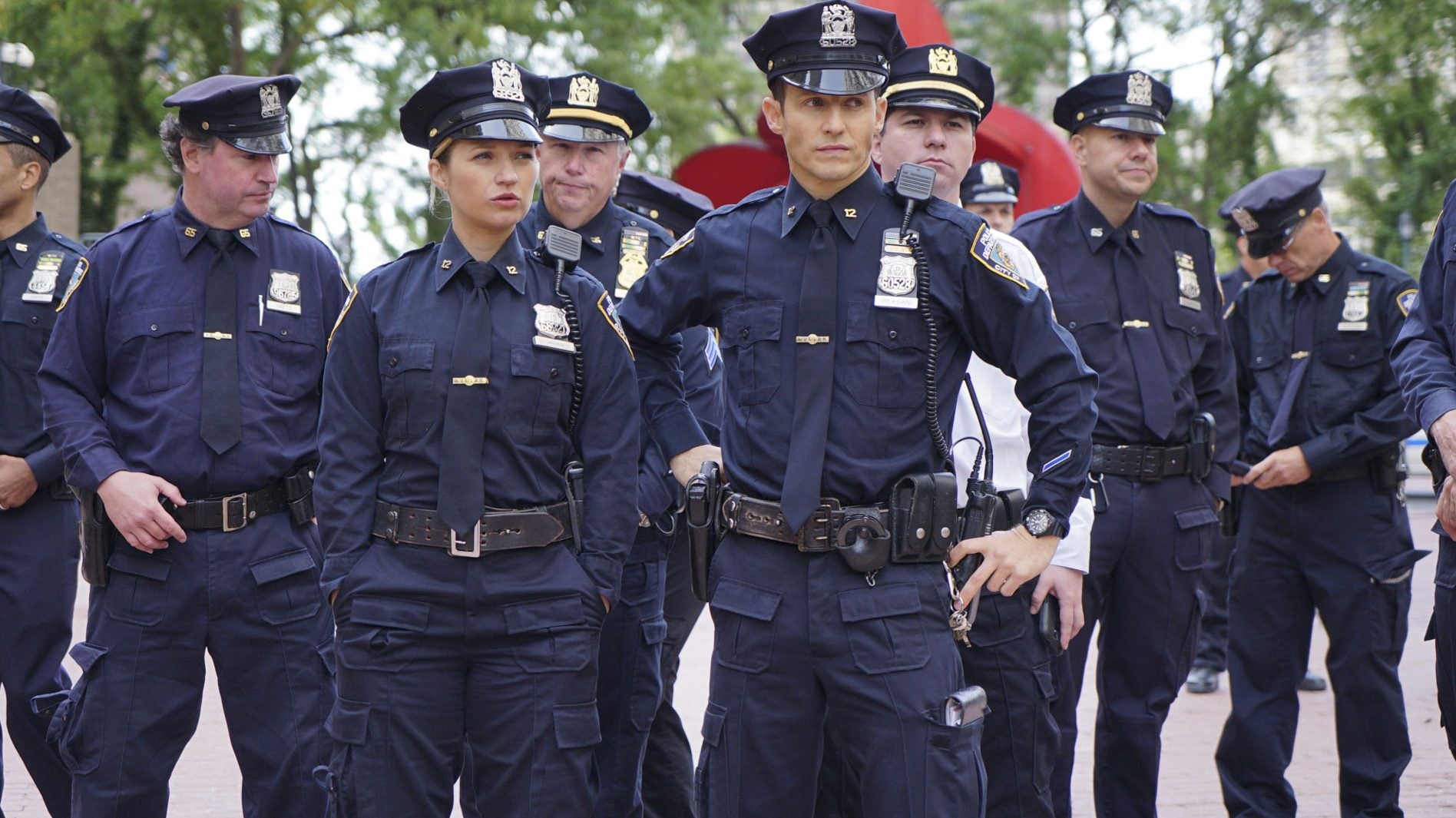Half of US broadcast network dramas are about cops
Perhaps one reason why America’s national reckoning on police brutality took so long to arrive is because TV is conditioning its citizens to view cops as reliable heroes.


Perhaps one reason why America’s national reckoning on police brutality took so long to arrive is because TV is conditioning its citizens to view cops as reliable heroes.
Of the 69 scripted television dramas that aired on the big four US broadcast networks (CBS, NBC, Fox, and ABC) in the last year-and-a-half, 35 were about law enforcement, according to a Quartz analysis. CBS was responsible for 16 of those on its own. About 70% of the network’s dramatic programming from 2019-2020 were about cops.
Quartz defined cop shows as any scripted TV drama in which the main characters are law enforcement officers or their allies—including the FBI, private detectives, and military police—and their jobs are integral to the story (think CSI, Blue Bloods, or Chicago PD). The few ongoing cop comedies, like NBC’s Brooklyn Nine-Nine, were not included. Neither were reality shows, such as Cops or Live PD.
For comparison, Quartz included the scripted drama lineups of HBO, a premium cable channel, and the CW, a network aimed at younger viewers. Both had far lower percentages of cop shows than those of the four primary US broadcast networks.
Numerous academic studies over many years have showed that viewing cop shows can leaded to warped views of the criminal justice system and policing. A 2015 study by St. John Fisher College found viewers of these shows are more likely to believe police departments are much more effective in solving crimes than they are in reality. The same study also found that viewers were more likely to believe police misconduct is not a problem, and that officers only use force when necessary.
A 2018 joint report by the racial justice group Color of Change and the University of Southern California found American police shows tend to normalize injustice in the minds’ of viewers. “The Crime TV genre, which reaches hundreds of millions of people in America and worldwide, advances debunked ideas about crime, a false hero narrative about law enforcement, and distorted representations about Black people, other people of color and women,” the report said. It also pointed out that the creators, writers, and show runners of these shows are overwhelmingly male and white.
Not only are there dozens of cop shows across US networks, but several of them are among the most-watched series each year. Cop shows accounted for four of the top 10 and 17 of the top 50 most popular TV series last year, according to Nielsen. NCIS, which has aired on CBS since 2003, averaged 15.3 million viewers each episode—more than ESPN’s weekly National Football League games.
The Hollywood Reporter ran a similar analysis last week, finding that nearly 20% of all scripted network TV shows (including comedies) were about law enforcement from 2019-2020. That figure was slightly down from a peak of 28.7% in 2014-2015.
The numbers paint a picture of a broadcast industry that is deeply dependent on scripted cop-related content to reach older viewers. Police procedurals are very popular with viewers 50 and over, and not very appealing to younger audiences. Those shows only accounted for two of the top 10 most-watched shows of last year by viewers between the ages of 18 and 49, and 12 of the top 50.
That’s likely because cop content is tied so closely to the traditional cable TV bundle, which younger Americans are increasingly ditching to sign up for streaming services instead. The median viewer of CBS in October of last year was 63-years-old, Adweek reported. Meanwhile, the median age of a Hulu subscriber is about 32.
It’s not just the four big broadcast networks that are blanketing the airwaves in cop shows. Many of the dramas they originally broadcast are then licensed out for syndication on a variety of lesser known cable channels. Turn on your TV at any hour of any day and you’re likely to find reruns of shows like CSI or Law & Order.
For instance, virtually every drama that airs on Ion Television is a syndicated cop show. Including original and acquired programming, half of the dramas that aired on TNT in 2019 and 2020 were about cops. More networks like Oxygen, We TV, and Pop are staples of many basic cable packages, and they frequently air reruns of cop shows as well.
That’s in addition to the channels that are wholly designed around law enforcement, like Crime & Investigation (owned in part by Disney) and Investigation Discovery.
In sheer numbers, the cop genre far outpaces its closest competition—medical and legal dramas. Only 8% of CBS’s drama lineup in the last year were legal dramas, while it had no medical dramas. ABC had the highest percentage of medical and legal dramas, each accounting for about 15% of the network’s lineup (cop dramas accounted for about 38%).
Even many of the non-cop dramas on these channels are so cop-adjacent that one could reasonably argue they are also about law enforcement. CBS’s Madam Secretary follows the fictional US secretary of state, a former CIA analyst. Evil follows a forensic psychologist investigating supernatural incidents. Blood & Treasure follows a former FBI agent teaming up with an art thief to track down a terrorist.
Quartz did not include these dramas as cop shows, but they are nonetheless part of a TV landscape that tends to glorify anyone associated with investigating crimes—even when they do so with reckless abandon.